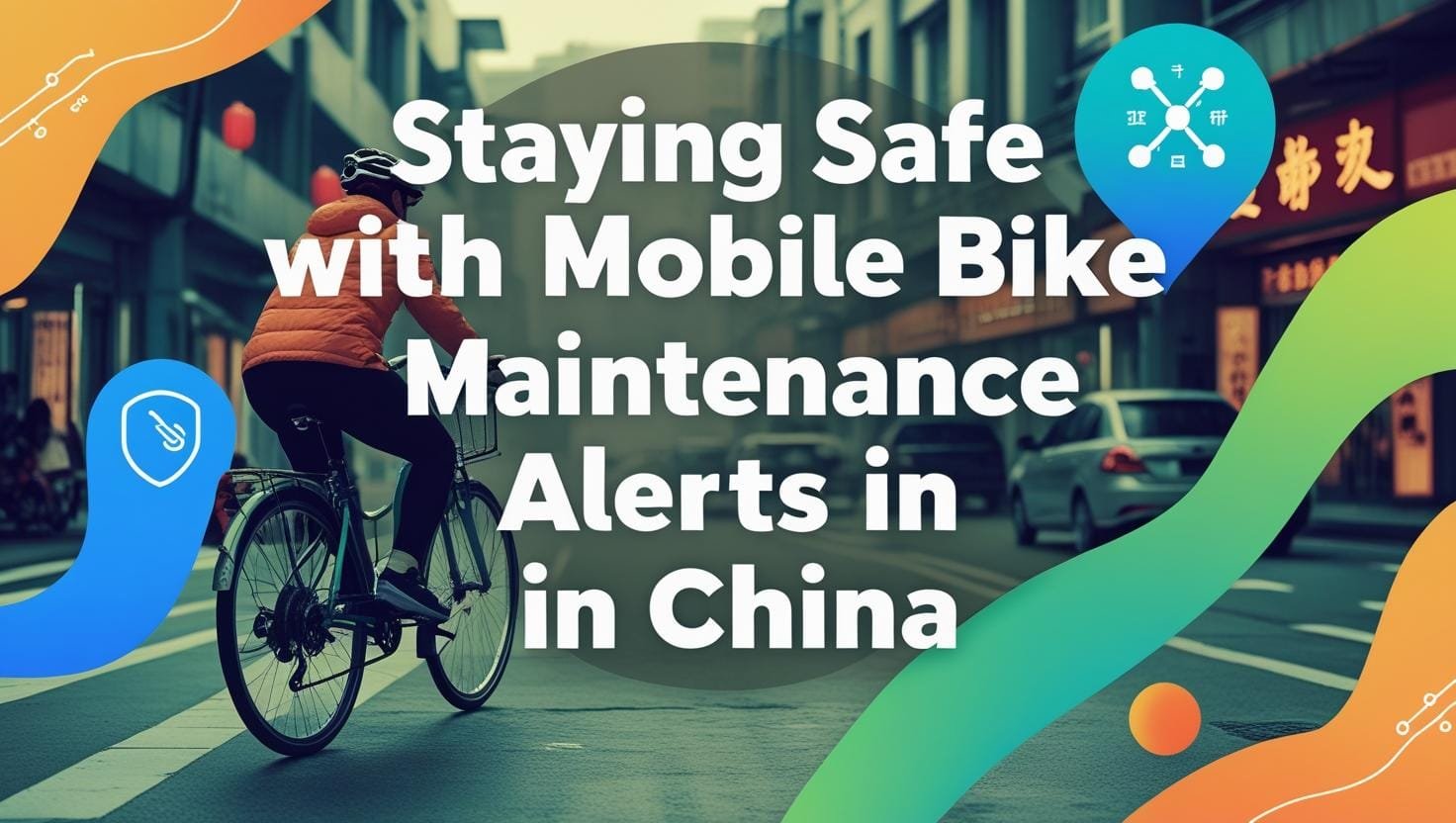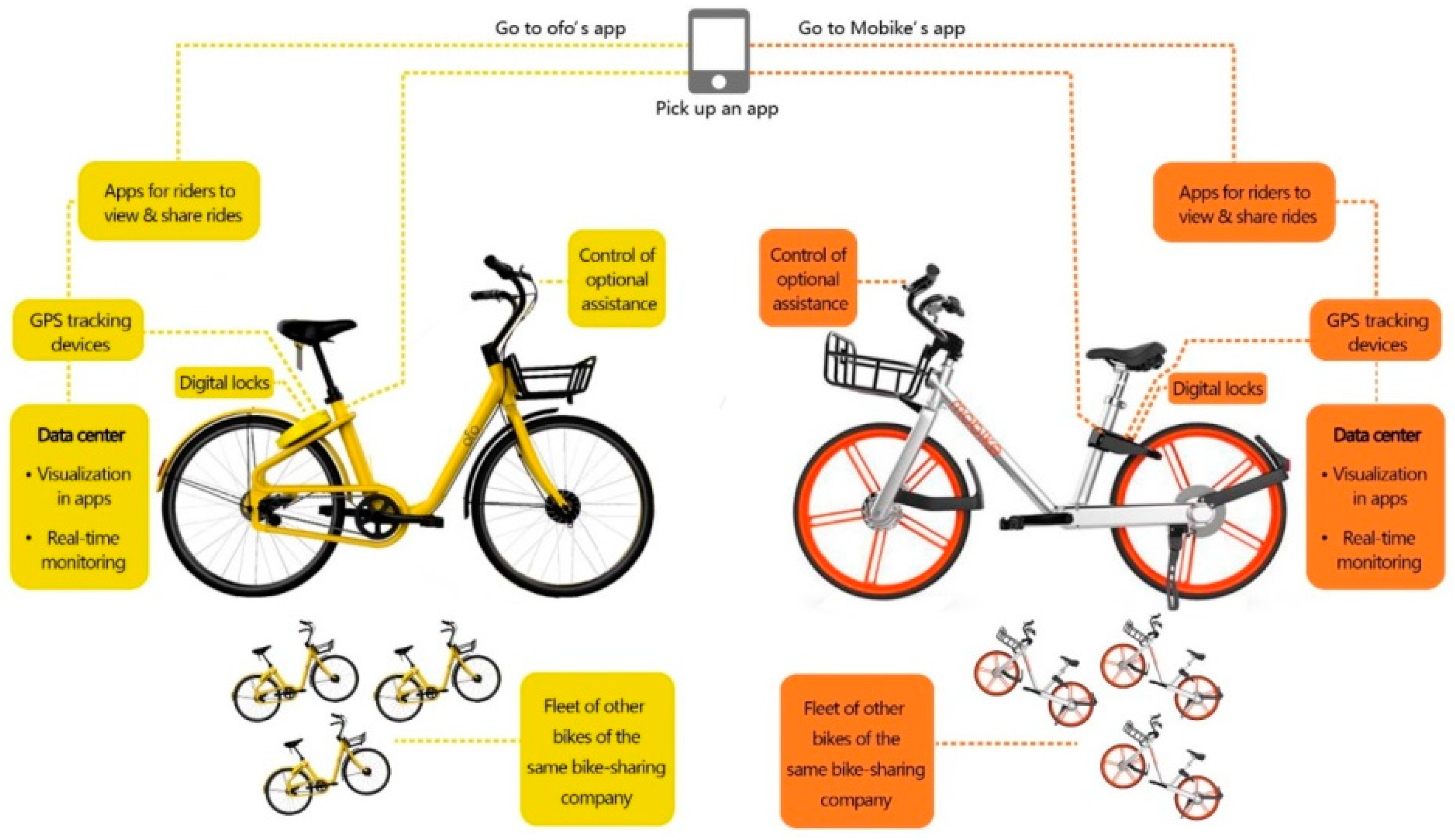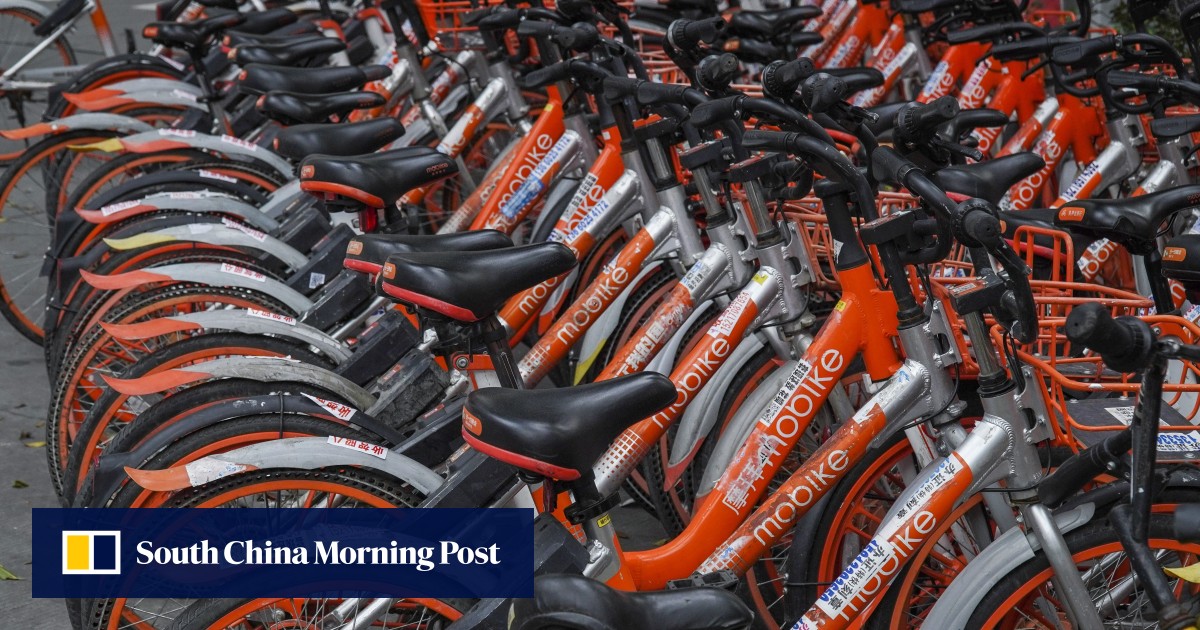Staying Safe with Mobile Bike Maintenance Alerts in China
Welcome to jusha.travel, your go-to source for all things China travel! Today, we’re diving into a topic that blends modern technology with a classic mode of transportation: cycling. China’s urban landscapes, with their sprawling bike lanes and ubiquitous shared bicycles, offer an incredible way to experience the country. But with thousands of bikes zipping around, how do you ensure your ride is safe and sound? The answer lies in the increasingly sophisticated world of **mobile bike maintenance alerts**. These alerts, often delivered through handy apps, are revolutionizing **China bike-sharing safety** and contributing significantly to the overall experience of **urban cycling in China**. In this post, we’ll explore how these innovative systems work, why they’re crucial for safety, and how travelers can best utilize them to make their Chinese adventures both enjoyable and secure.
The Rise of Bike-Sharing and the Need for Smart Maintenance
China boasts one of the world’s most impressive bike-sharing ecosystems, with millions of dockless bicycles available at the tap of a screen. From bustling metropolises to charming smaller cities, these bikes offer unparalleled convenience and a fantastic way to explore. However, with such a massive fleet, challenges like wear and tear, occasional vandalism, and even theft are inevitable. Users might encounter bikes with flat tires, missing pedals, or other hidden damages, as highlighted by sources like TravelChinaGuide’s insights on Chinese lifestyle and issues faced by companies like Mobike, a prominent bike-sharing company. This is where **mobile bike maintenance alerts** step in, acting as crucial guardians of safety and efficiency.
These alerts are notifications sent directly to users or operators via smartphone apps, signaling when a bicycle requires servicing, component replacement, or inspection. They are typically based on factors such as usage data, time elapsed since the last service, or even real-time performance data. For both private bike owners and especially for users of China’s extensive bike-sharing schemes, these alerts are vital for prolonging bike life, ensuring reliability, and, most importantly, preventing potentially dangerous breakdowns.
How Technology Keeps You Rolling: Bike Repair Apps and QR Codes
So, how do these magical **mobile bike maintenance alerts** actually work? Modern **bike repair apps**, whether for personal bikes or integrated within bike-sharing platforms, leverage sophisticated technology to monitor a bike’s status. For individual cyclists, platforms like ProBikeGarage allow users to track their bike’s usage, reminding them when components like tires or brakes might need attention based on mileage or time.
For bike-sharing services, the integration is even more pervasive. These apps often combine GPS tracking, electronic fencing, and user input to manage their vast fleets. When you scan a QR code to unlock a shared bike – a common practice for **QR code travel** in China – the app logs your ride, and this data contributes to the maintenance picture. Alerts can be generated automatically based on:
* _Distance traveled or total number of rides:_ Signaling routine checks or part replacements.
* _Time elapsed since last service:_ Ensuring periodic maintenance even for low-usage bikes.
* _Sensor data:_ Some advanced bikes can even transmit data indicating mechanical issues directly.
Furthermore, if a user encounters a damaged bike, they can typically report the issue directly through the app interface. This instantly triggers a maintenance alert for the operator, flagging the bike for repair and preventing future riders from encountering a faulty vehicle. This proactive approach significantly enhances **China bike-sharing safety** by minimizing the risk of accidents caused by neglected equipment.
Maximizing Your Safety: Tips for Urban Cycling in China
While sophisticated systems are in place, your active participation is key to leveraging **mobile bike maintenance alerts** for a safe **urban cycling in China** experience. Here are some invaluable tips for travelers:
* **Heed Notifications Promptly:** If you’re using a personal bike app or a long-term rental, respond to maintenance notifications without delay. Whether it’s a tire pressure check or a chain lubrication alert, addressing small issues prevents them from becoming major safety hazards.
* **Visual Check Before You Ride:** Even if a shared bike shows no maintenance alert in the app, always perform a quick visual inspection. Check the tires for air, ensure brakes are functional, and look for any obvious damages like bent wheels or loose seats. If something feels off, report it via the app and choose another bike.
* **Report Problems In-App:** Most major **China travel apps** that facilitate bike-sharing allow you to report issues with a bike directly. For instance, the apps often have a “report problem” or “damage report” function. This ensures that operators are aware of problematic bikes and can dispatch maintenance teams efficiently. As mentioned by RegistrationChina.com, most leading apps offer English interfaces and customer support, making this process easier for foreigners.
* **Park Smart:** Always park shared bikes in designated areas as indicated by the app. Improper parking can not only lead to fines but also make it difficult for maintenance teams to locate and service bikes that might be out of place or in restricted zones.
* **Be Aware of Your Surroundings:** Chinese cities are bustling, and traffic can be intense. Always be aware of pedestrians, other cyclists, and vehicles. Stick to bike lanes where available, and always signal your turns.
By following these practices, you contribute not only to your own safety but also to the overall efficiency and safety of the bike-sharing system for everyone.
The Future is Connected: QR Code Travel and Beyond
The integration of **mobile bike maintenance alerts** with everyday practices like **QR code travel** showcases China’s commitment to technological advancement and smart urban living. The convenience of simply scanning a QR code to unlock a bike is now complemented by sophisticated backend systems that ensure the bikes you’re using are as safe as possible. This seamless blend of accessibility and safety is a testament to China’s innovative spirit, particularly in its approach to public transportation and shared services.
For travelers, these advancements mean a more reliable and secure way to explore vibrant Chinese cities. Whether you’re marveling at the ancient architecture in Xi’an, navigating the futuristic streets of Shanghai, or enjoying the scenic beauty of Hangzhou, a well-maintained bike can enhance your experience significantly. Services like MathewBike even offer mobile bike repair services, further emphasizing the growing ecosystem of bike support in China.
Conclusion
The era of **mobile bike maintenance alerts** has truly transformed **urban cycling in China**, making it an even safer and more reliable option for both locals and travelers. These innovative systems, deeply embedded within popular **China travel apps**, reinforce **China bike-sharing safety** by leveraging data and user input to keep fleets in top condition. Here at jusha.travel, we believe that understanding and utilizing these technological tools is key to an unforgettable and secure journey through China.
Don’t let a faulty bike derail your adventure! Embrace the convenience and security that these modern systems offer. Have you used bike-sharing in China? Do you have any tips for fellow travelers? Share your experiences in the comments below! For more insights into traveling safely and smartly in China, be sure to visit jusha.travel and explore our other articles designed to inspire your next great adventure.






1 comment
[…] what happens when a tire goes flat or a chain breaks? That’s where the unsung heroes of mobile bike repair apps come into play, ensuring urban mobility in China remains smooth and efficient. These innovative […]